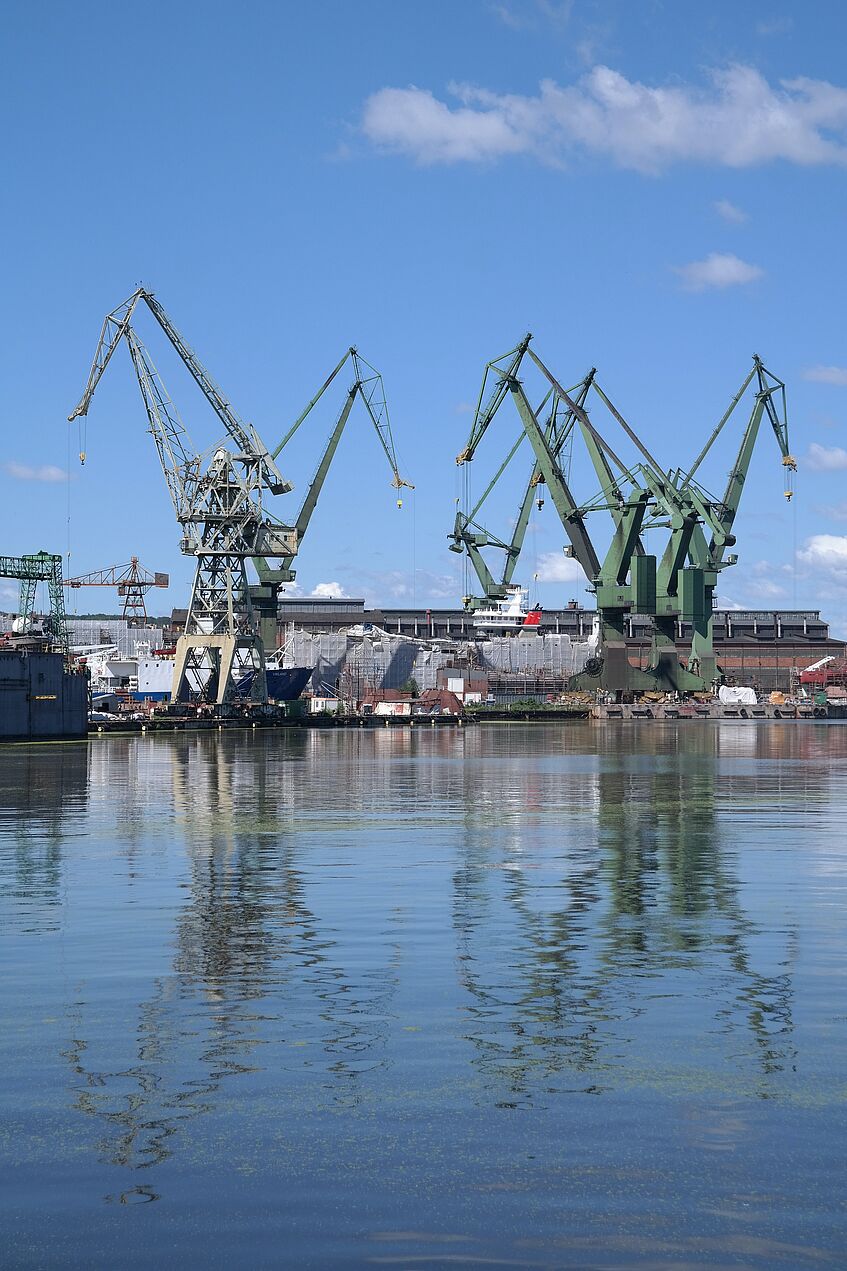INTERVIEW | Social history: political and social upheavals on a global scale

Photo by Jens Peter Olesen on Unsplash
INTERVIEW | Social history: political and social upheavals on a global scale
As part of the current semester question, Philipp Ther, expert in Eastern European history and Wittgenstein Prize winner, sums up the background to his project "The Great Transformation" and explains why the societal perspective is just as important as the political and economical perspective in this context
uni:view: Your Wittgenstein project is entitled "The Great Transformation. A Comparative Social History of Global Upheaval". That sounds like an incredibly vast field of research. What is your approach to great transformations?
Philipp Ther: The term "the great transformation" is derived from the most important work of the Hungarian-Austrian economic historian Karl Polanyi. In it, he describes the period of industrialization in England in the 19th century and – as Polanyi calls it – the associated "global laissez-faire capitalism" up to the interwar period. In using his definition in the project, we break with the notion of transformation that prevailed after 1989 – which was about the two teloi of liberal democracy and a completely free market economy. Like Polanyi, we are also concerned with social change and the broader question of the repercussions of post-communist transformations on the West.
uni:view: How can transformations be studied worldwide?
Ther: I can best describe that using a concrete project which we recently completed: in "Transformation from below", my team and I compared shipyards in Uljanik in Croatia and Gdynia in Poland. Specifically, we studied the period of late state socialism, post-socialism, and the period of EU accession for both countries. EU competition policy contributed to the bankruptcy of the large shipyards in both countries, in each case five years after joining the Union. The big winners from this transformation – in economic terms – over the past 40 years have been East Asian shipyards: from South Korea, but also increasingly from China. The history and fate of these Eastern European shipyards cannot be understood without East Asian competition, which has grown very strongly since then. In this way, global upheavals can also be analyzed more closely and accurately using concrete case studies.
uni:view: In 2020, you founded your own center for your research, the "Research Center for the History of Transformations (RECET)." Can you explain the objectives of the center in more detail?
Ther: Transformations serve as an umbrella term for us, and the center itself is divided into a total of five sub-areas or research fields: first, a socio-historical focus; second, reform policies and economic thinking; third, transformation and migration; fourth, civil society and voluntarism; and a fifth focus deals with cultural transformations. All of these foci are associated with various individual projects. RECET has grown very strongly in this first year and is already permanently institutionalized thanks to further fundraising – we’ve gone beyond the Wittgenstein Prize funding to reach 1.7 million euros – and the support of the Rectorate, which means it will exist even when the prize money runs out one day.
uni:view: You shed light on transformations from both a macro and micro perspective. What are the exact differences and why is it significant to look at both perspectives?
Ther: Social science transformation research after 1989 has predominantly worked with a macro perspective, meaning that it has been concerned with the transformation of market economies, with economic reforms and – in the process – with privatization. With regard to the societal perspective, the research situation is not so good, but this perspective is just as important.
Poland is a good example: among the so-called transition states, it is considered a relatively successful country in economic terms. At the same time, the strong economic data contrast with the experiences of many people. Even if there has been an increase in prosperity and better provision of consumer goods, the fact is that young people in particular view these transformations much more critically. We were able to glean this from first-person documents such as submissions to memoir contests, letters, newspaper articles, and contemporary socio-historical interviews. In part, this explains the shift to the right under PiS and its electoral victories.
uni:view: To what extent does a change in values – the topic of our current semester question – inform your research?
Ther: A positive point of reference for us are the values of 1989, which have remained very important among our neighbors. During the revolution in Ukraine in 2013/14, the values of 1989 were also very consciously taken up again. These values are of course of interest to us, but so are the values of the authoritarian regimes in Eastern Europe.
As far as the recent change in values is concerned, it must be noted that there has been a turning away from Western values in post-communist Europe, and also in East Asia, since the global financial crisis of 2008/09. There, the representatives of values that can be described as counterrevolutionary with reference to 1989 have gained power. In the last ten years, we have observed an anti-democratic and anti-liberal change in values.
uni:view: Thank you very much for the interview! (td.)
Philipp Ther, born in 1967 in Mittelberg, Austria, earned his doctorate and habilitation at the FU Berlin. He was subsequently a professor at the EUI, and has been a professor of the history of East Central Europe at the University of Vienna since 2010. Here he also directs the Research Cluster for the History of Transformation (RECET). In 2019, Ther received Austria's most highly endowed academic award, the Wittgenstein Prize.
This interview has been conducted by Theresa Dirtl. You can read the original here.
